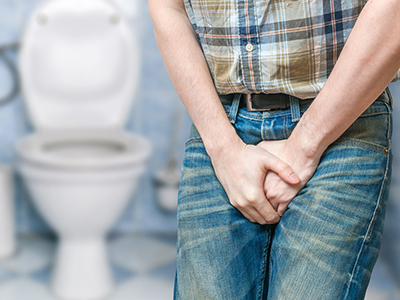Can Male Urine Disorders Affect Fertility in Men?
Male urine disorders are more than just inconvenient; they can sometimes indicate deeper health concerns. While many people associate urinary problems with aging or infections, certain conditions can also impact reproductive health. Understanding how these disorders influence fertility is crucial for men who are planning to start a family. Male Urine Disorders in Dubai can involve issues like urinary tract infections, prostatitis, and bladder dysfunctions, all of which may interfere with sperm production or transport, potentially reducing fertility. Early awareness and proper management are essential for maintaining both urinary and reproductive health.
How Urinary Health Connects to Fertility
The urinary and reproductive systems in men are closely linked. The prostate, urethra, and testes all play critical roles in sperm production and ejaculation. If a male experiences chronic urinary disorders, it can sometimes disrupt the delicate balance needed for optimal sperm health. Infections or inflammation in the urinary tract can reach the reproductive organs, leading to issues such as decreased sperm motility or abnormal sperm counts. Even temporary urinary issues, if recurrent, may contribute to long-term fertility concerns.

Common Urinary Disorders That Affect Fertility
Several male urine disorders are known to potentially influence fertility:
Prostatitis: Inflammation of the prostate can reduce semen quality and cause painful urination.
Urinary Tract Infections (UTIs): These infections can spread to the reproductive organs, impacting sperm health.
Bladder Dysfunction: Incomplete bladder emptying may cause reflux, which can affect sperm passage.
Obstructions: Conditions like urethral strictures can interfere with normal ejaculation.
Addressing these disorders promptly can prevent further complications that might impair fertility.
Symptoms to Watch For
Men should be attentive to symptoms that may indicate urinary disorders affecting fertility, including:
Painful or burning sensation during urination
Frequent urges to urinate, especially at night
Blood in urine or semen
Erectile dysfunction or reduced libido
Recurrent urinary tract infections
Recognizing these warning signs early allows men to seek professional advice and avoid long-term reproductive consequences.
Diagnostic Approaches
To understand the impact of male urine disorders on fertility, several diagnostic methods are commonly employed:
Urinalysis: Detects infection, blood, or protein in urine.
Ultrasound: Visualizes the prostate, bladder, and kidneys for abnormalities.
Semen Analysis: Evaluates sperm count, motility, and morphology.
Urodynamic Tests: Measures bladder and urethral function to detect obstructions or dysfunctions.
Early diagnosis allows targeted treatments to address both urinary and reproductive health concerns effectively.
Treatment Options
Treatment varies depending on the specific disorder and its impact on fertility:
Antibiotics: For infections like UTIs or bacterial prostatitis.
Anti-inflammatory Medications: To reduce inflammation in the prostate or urinary tract.
Lifestyle Adjustments: Including diet modifications, exercise, and improved hydration.
Surgical Interventions: For structural issues like strictures or obstructions, if necessary.
With proper management, men can often restore urinary function and improve reproductive outcomes.
Preventive Measures
Preventing male urine disorders is a proactive way to protect fertility. Key strategies include:
Maintaining good hydration
Practicing safe hygiene
Regular medical check-ups
Avoiding excessive alcohol and smoking
Managing chronic conditions like diabetes or hypertension
A proactive approach can reduce both urinary and reproductive complications.
Male Urine Disorders: Importance of Awareness
In Dubai, awareness about male urine disorders is growing, with more men seeking information on how urinary health affects overall well-being, including fertility. Male Urine Disorders Dubai is an emerging concern, emphasizing early diagnosis, lifestyle management, and timely intervention to safeguard reproductive potential.
Conclusion
Male urine disorders are not just uncomfortable—they can have far-reaching effects on fertility if left untreated. Understanding the connection between urinary health and reproductive function is essential for men of all ages. By recognizing symptoms early, seeking appropriate treatment, and adopting preventive measures, men can maintain both urinary and reproductive health. Staying informed and proactive ensures a better overall quality of life and reproductive success.